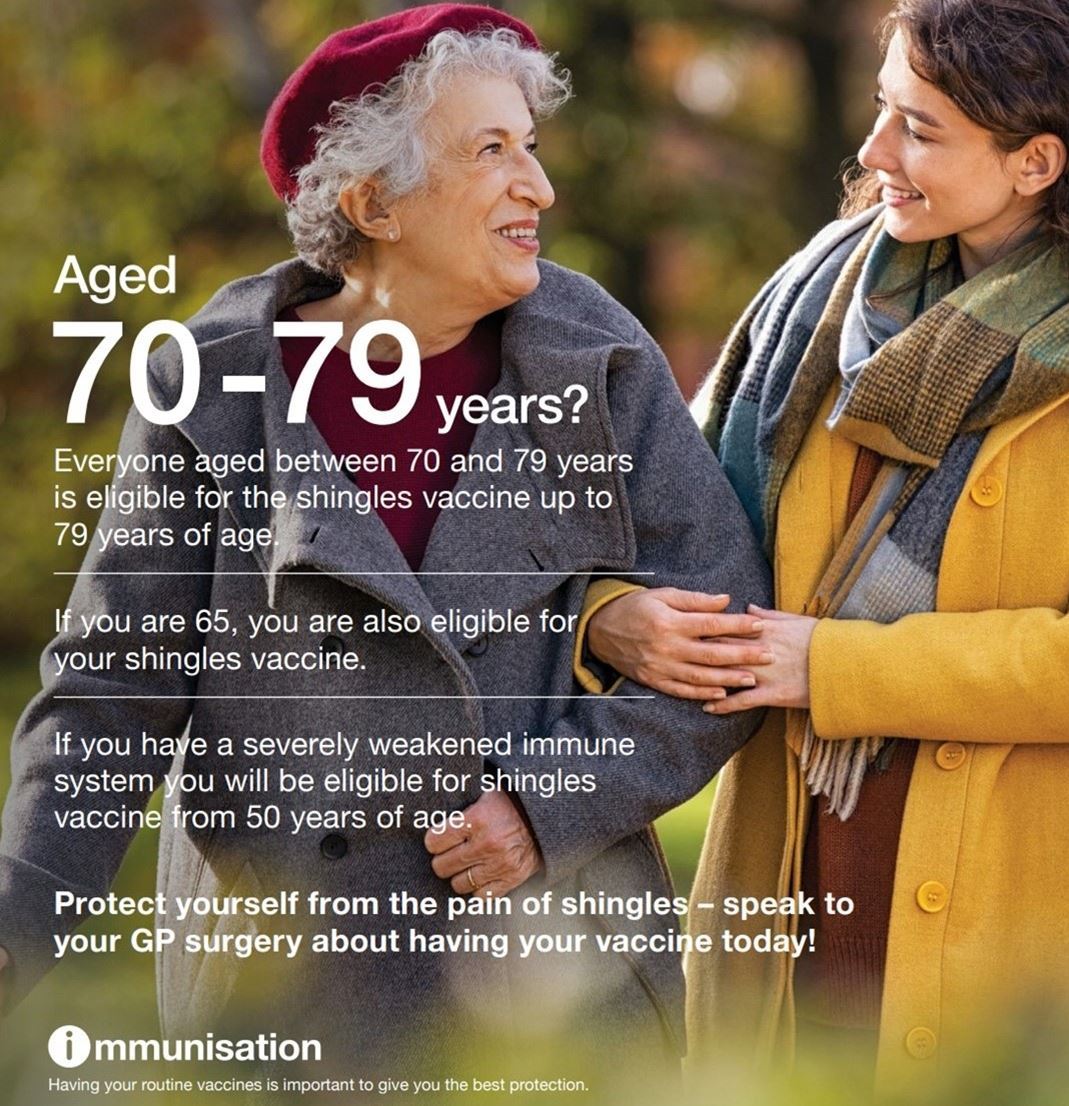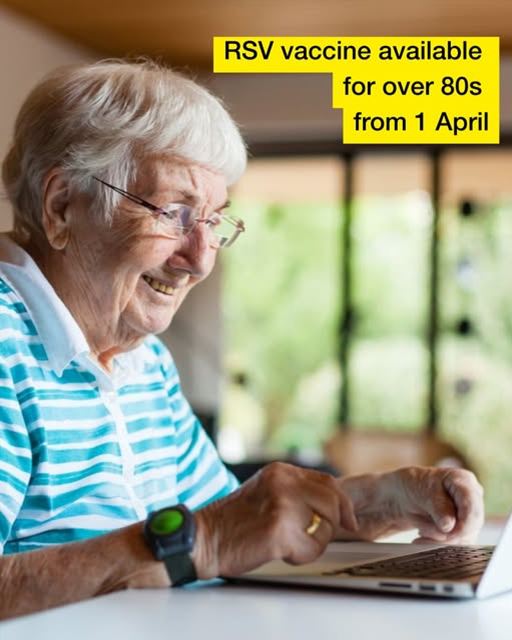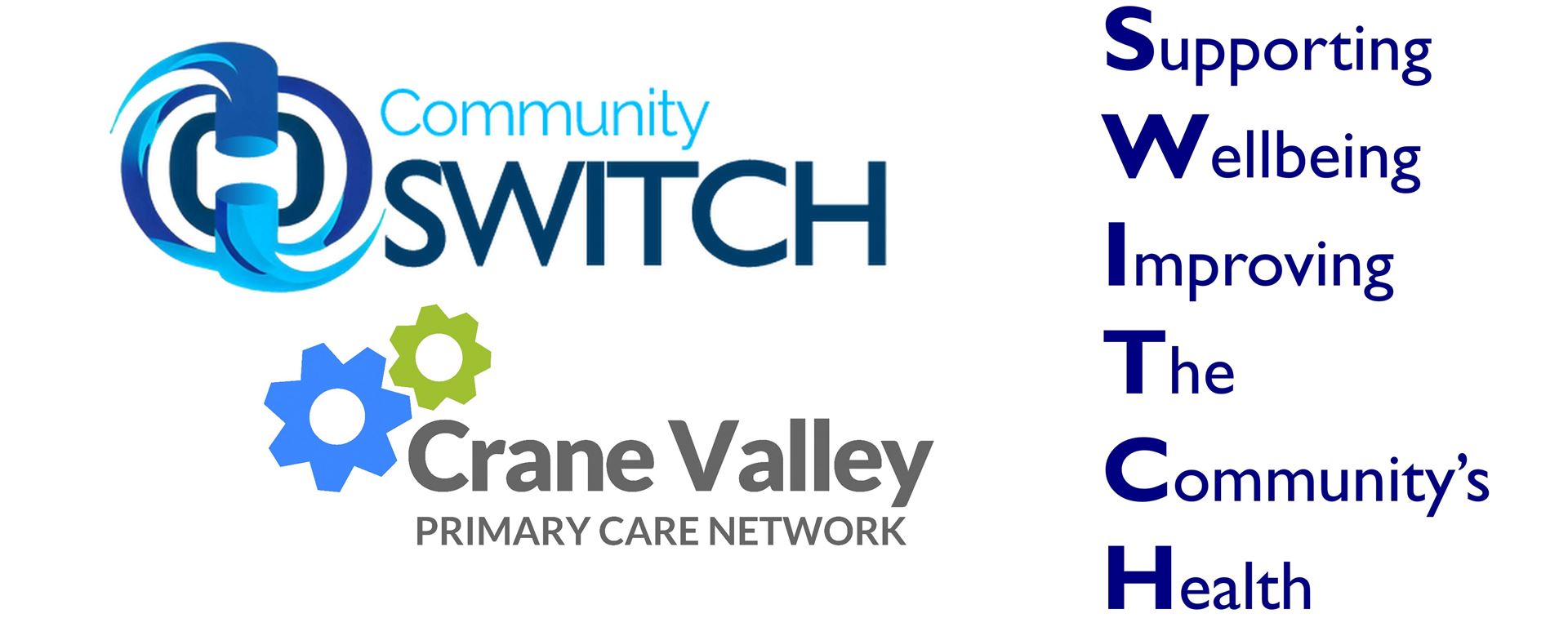Vaccinations
Winter Vaccination Programme -information
We’re pleased to share that our Saturday Flu and COVID vaccination clinics have now been completed. A huge thank you to everyone who attended and for the continued support you’ve shown to our surgery — it really means a lot to the whole team.
If you haven’t yet received your vaccination, please don’t worry. You can still contact the surgery, and we’ll arrange an appointment for you in one of our smaller ongoing clinics with our practice nurses.
Thank you again for your patience, understanding, and support as we work together to keep our community healthy.
— The Team at Verwood Surgery
Key Change to COVID vaccine eligibility this season:
The eligibility for COVID-19 vaccination has narrowed to focus on those at the highest risk of serious illness.
Winter vaccinations
The NHS encourages eligible groups—such as older adults, pregnant women, young children, those with certain health conditions and carers—to get vaccinated as early as possible in the season.
Winter Flu
Influenza (flu) vaccination is important because, while flu is unpleasant for most people, it can be dangerous and even life-threatening for some, particularly those with certain health conditions. Getting vaccinated helps protect individuals from flu and relieves the pressure on the NHS and social care services.
In the UK, the flu vaccination season typically starts in September and runs until March, with the main push for vaccinations occurring between September and early December. This ensures people are protected before flu activity peaks, usually between December and March.
COVID-19
Viruses change, and protection fades over time. The COVID-19 vaccine helps protect against COVID-19 virus, which can be a serious or life-threatening illness. People at increased risk of getting seriously ill from COVID-19 are invited to receive the vaccine, which the NHS usually offers in spring and early winter.
Getting the COVID vaccine can help reduce your risk of getting severe symptoms and help you recover more quickly if you catch COVID. It protects against different types of the COVID virus and can help reduce your risk of being hospitalised if you become infected.

Childhood Immunisation
Childhood immunisation is an important aspect of your child's healthcare. For information on routine childhood immunisation, please visit our Children's Health page by following this link:>>
Shingles Vaccinations
The Shingles vaccine helps protect you from shingles, a common, painful skin disease.
Previously, you could only have the shingles vaccine between the ages of 70 and 79. However anyone turning 65 on or after the 1st of September 2023 is able to get the vaccine after their birthday.
Please note that if you have your 65th birthday before the 1st of September 2023, you will have to wait until you are 70 to become eligible. Eligibility will then be expanded to include everyone aged 60 and over by September 2033.
From September, the shingles vaccine will also be available to those aged 50 or over with a severely weakened immune system. Immunocompromised individuals who have already received 2 doses of their Shingles Vaccine do not need re-vaccination.
You do not need to get in touch with us to request a shingles vaccine as patients are contacted when they become eligible. However if you are eligible and think you may have missed your vaccine, please contact us>>
The shingles vaccine is given as a single injection into the upper arm. Unlike the flu jab, you’ll only need to have the vaccination once, and you can have it at any time of the year.
For more information visit the Shingles vaccine overview page on the NHS website>>


Respiratory Syncytial Virus (RSV) Vaccinations
Expansion of the NHS RSV Vaccination Programme
From 1 April 2026, the eligibility for the RSV vaccine is changing to include more people in our community. RSV is a common cause of coughs and wheezing, but it can lead to serious lung infections in older adults.
Who is eligible?
The vaccine is now available to:
- New: Everyone aged 80 years and over.
- New: All residents in care homes for older adults.
- Existing: Adults aged 75–79.
- Existing: Pregnant women.
What do I need to do?
Please do not contact the surgery at this time. We are currently identifying all eligible patients and will contact you directly to book your appointment once the rollout begins in April.
Double up on protection: From 13 April 2026, if you are eligible for both the RSV and the Spring COVID-19 vaccines, you can conveniently receive both at the same time.
Pneumococcal vaccine for over 65s
Protection against serious and potentially fatal pneumococcal infections.
A pneumococcal infection can affect anyone. But some people such as adults aged 65 or over are at higher risk of serious illness.
The pneumococcal vaccine protects against serious and potentially fatal pneumococcal infections. It's also known as the pneumonia vaccine.
Pneumococcal infections are caused by the bacterium Streptococcus pneumoniae and can lead to pneumonia, blood poisoning (sepsis) and meningitis.
People aged 65 and over only need a single pneumococcal vaccination. This vaccine is not given annually like the flu jab. For more information visit the Pneumococcal vaccine overview page on the NHS website:>>
Men ACWY Vaccination
A rare but life-threatening disease caused by meningococcal bacteria.
Meningococcal disease (meningitis and septicaemia) is a rare but life-threatening disease caused by meningococcal bacteria.
Older teenagers and new university students are at higher risk of infection because many of them mix closely with lots of new people, some of whom may unknowingly carry the meningococcal bacteria at the back of their nose and throat.
"Fresher" students going to university for the first time should make sure they've had the MenACWY vaccine to prevent meningitis and septicaemia, which can be deadly. The MenACWY vaccine is also routinely offered to teenagers in school Years 9 and 10.
Anyone born on or after 1 September 1996 who was eligible but missed their teenage MenACWY vaccine can still have the vaccine up to their 25th birthday. For more information visit the MenACWY vaccine overview page on the NHS website:>>.
Travel vaccinations
Foreign travel may expose patients to certain infections. So, If you're planning to travel outside the UK, find out what vaccinations you might need on our Travel Health page by following this link:>>
Other Vaccinations Offered by the NHS
This guide can help you understand the vaccines offered in the UK and when to have them. It also explains how they work and why they’re safe and important. Follow this link for more information about vaccinations from NHS UK>>
If you have any questions or concerns regarding vaccinations, please contact us.
Page created: 26 February 2024
